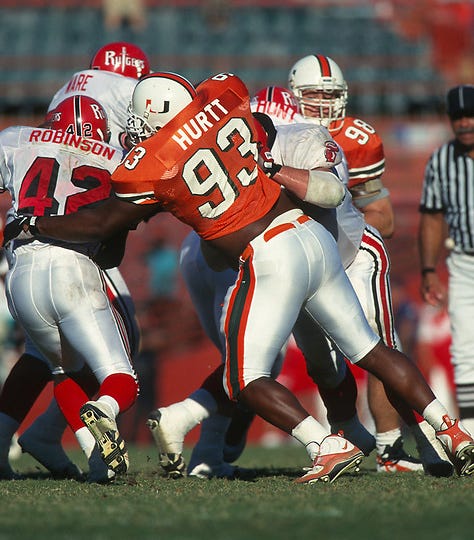I will make you Hurtt
How Seahawks defensive coordinator Clint Hurtt got from Gates Chili to Seattle, Washington: Seaside Joe 1546
I’ve long lived my life by the philosophy that it’s a waste of emotion and energy to instantly react to an event or situation and judge that it must have been “really good” or “really bad”. Getting fired from your job? It could be the best thing that ever happened to you. Winning the lottery? It could be the worst.
That’s why I like food. We recently went to one of the best steakhouses in Los Angeles and you know what? It was really good. That’s a value judgment that I actually can guarantee.
When Clint Hurtt got an offer to play football at the University of Miami in the late ‘90s, that was a cause for celebration. Had he known that his college playing career would be short-lived and his time at Miami soon forgotten, would that have made it easier to accept his fate?
When a knee injury ended Hurtt’s football career, surely that was a disappointment. But if he hadn’t gotten that chance to get an early start on his coaching career, first rising through the college ranks, then advancing to the NFL, and now a 44-year-old defensive coordinator with plenty of time left to potentially run his own team if he can turn the Seahawks defense around soon, perhaps Hurtt would have viewed the worst day of his life as a player instead as the first day of his life as a coach.
Clint Hurtt is entering his second year as the defensive coordinator and seventh year as an assistant coach on the Seahawks, so as we run through the origin stories of Seattle players, I feel it would be a good time to get a refresher on the guy who is responsible for putting many of them in a position to succeed.
From recruiting Teddy Bridgewater to Louisville, getting in trouble with the NCAA, and taking a page from Vic Fangio, this is a brief history on Seahawks defensive coordinator Clint Hurtt.

